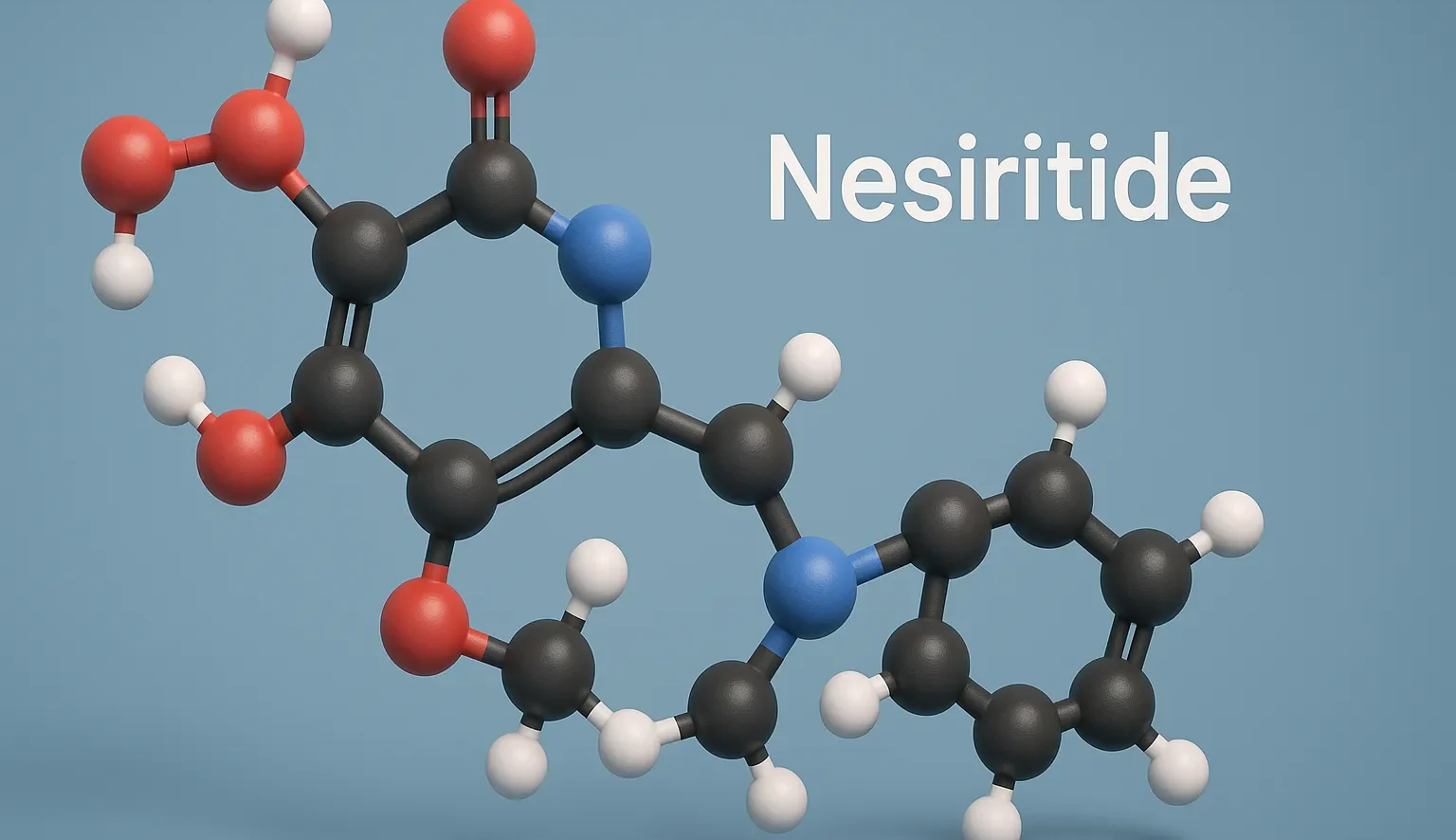Nesiritide is a recombinant BNP drug used in acute decompensated heart failure to promote vasodilation and reduce fluid overload.
Structure of Nesiritide
- Nesiritide is a recombinant form of B-type natriuretic peptide (BNP), comprising a 32-amino acid polypeptide with disulfide bonds stabilizing its structure.
- Chemical Formula: C₁₈H₂₇N₅O₅S₆

Mode of Action
- Guanylate Cyclase Activation: Binds to natriuretic peptide receptors, increasing cyclic GMP levels.
- Vasodilation: Causes relaxation of vascular smooth muscle, reducing systemic vascular resistance and afterload.
- Natriuresis and Diuresis: Promotes excretion of sodium and water by the kidneys.
- Renal Perfusion Enhancement: Improves renal blood flow and glomerular filtration rate (GFR).
Advertisements
Uses
- Acute Decompensated Heart Failure: Provides rapid relief of symptoms by reducing preload and afterload.
- Renal Dysfunction: Enhances renal perfusion and function in congestive heart failure.
- Hypertensive Crises: Utilized in managing severe hypertension by promoting vasodilation.
- Pulmonary Edema: Reduces fluid accumulation in the lungs by promoting diuresis.

